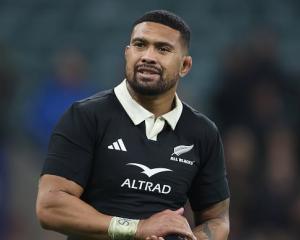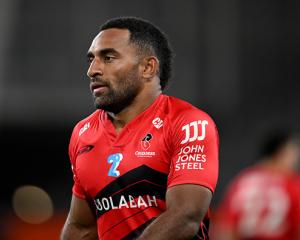Common sense has come back into the national game.
New Zealand Rugby head of referees Bryce Lawrence has tweaked the rules around foul play so players are not unfairly penalised when a play goes wrong.
There was much controversy in the June series concerning decisions in which the officials were bound by laws and penalised players who had no intent to commit foul play.
All Black coach Steve Hansen called for an overhaul of the laws and for more common sense to be shown.
Lawrence has made changes to give the referees more leeway.
``Clearly, in the June test window, some decision-making has irked some fans and teams who feel that more rugby context should be considered in this decision-making,'' Lawrence said.
``We are taking advantage of our own national provincial competitions to introduce an interpretation that maintains player safety as a priority, but allows the intent of the `action' and the `context of the game' to determine the sanctions for any foul play.
``We want referees to bring some more rugby feel to how they rule foul play.''
Lawrence said areas referees would focus on were the same as previous years: lifting tackles, deliberate contacts to the head (high tackles), deliberate knock-ons, illegal dangerous cleanouts, challenges in the air in which there was not a fair contest, cynical play, and repeat individual or team offending.
The new interpretations will mean that if the action is deliberate and dangerous and with force a red card will be issued.
If the action is reckless, but still dangerous but with limited or mild force, a yellow card will be issued.
If the action is unintentional and low level, a penalty only will be issued.
By asking referees to understand the game context, the player's action and the intent, not solely the process, Lawrence hopes to achieve better results for players, coaches and fans.
There is also some clarification concerning the role of the television match official.
The match referee is the only person who can refer to the TMO for try scoring or foul play. When the referee wants to check if a try is scored he/she will make an on-field decision that is either confirmed or overturned by the TMO.
For the TMO to overturn the on-field decision there must be compelling evidence.
Where the referee refers an incident of foul play to the TMO, the TMO will put the replays on to the big screen and the referee will own the decision.
If there is no big screen the TMO will explain the facts to the referee based on what he/she has seen and the referee will make the final decision.











